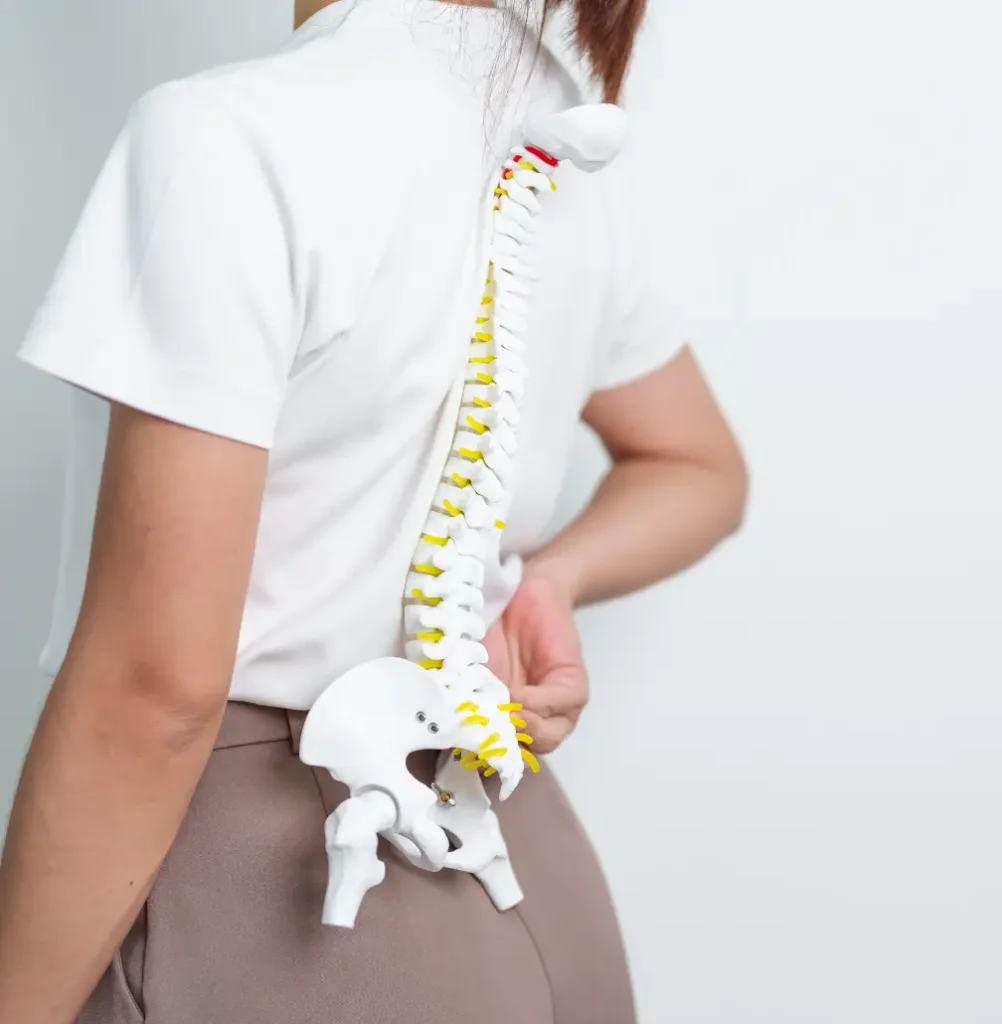Coccydynia is a medical condition characterized by chronic pain and persistent in the region of the coccyx, which is the small bone located in the lower part of the spine, just above the tailbone. This pain can be sharp, stabbing, or dull and, at times, can be triggered by activities such as sitting for long periods, move, or even when you have a bowel movement. The causes of coccydynia may include traumatic injuries, such as falls, difficult births or even infections.




Coccydynia: Types
- Trauma during Childbirth: Injury to the tailbone may occur during childbirth, especially in difficult births or with the use of instruments such as forceps.
- Gynecologic Surgery:Gynecological surgeries, such as hysterectomy, can contribute to the coccydynia due to the manipulation in the pelvic region.
- Direct injuries or Falls: Falls directly on the pelvic region, traumatic injuries or impacts on the tailbone may cause pain.
- Muscle tension or Spasms:The muscle tension in the pelvic region can affect the coccyx and cause pain.
- Hiperlaxitud Ligamentous:Some women may experience hiperlaxitud in the ligaments around the coccyx, which could contribute to the pain.
- Tumors or Masses in the Pelvic Region:Tumors or masses that affect the pelvic region can exert pressure on the coccyx and cause pain.
Dolores Sacroilíacos: Types
- Dysfunction Sacroiliac Joint: Involves an alteration in the mobility or stability of the sacroiliac joint, which can cause pain in the lower back and pelvis.
- Injury or Trauma: Injuries, like falls or impacts, direct in the pelvic region can cause pain sacroiliac.
- Pregnancy and Childbirth: During pregnancy, hormone changes can loosen up the joints, including the sacroiliac, which may contribute to the pain. Childbirth can also cause stress on these joints.
- Instability Pelvic: Structural issues that affect the stability of the pelvis can contribute to the pain sacroiliac.
- Spondylarthritis: Rheumatic conditions such as ankylosing spondylitis can affect the sacroiliac joints and cause pain.
Get an appointment.
Your health is our priority.
We are happy to help you. To schedule an appointment with us, please provide your contact information and availability in the form below.
We hope to serve you soon and work together on your journey toward a healthier life.
